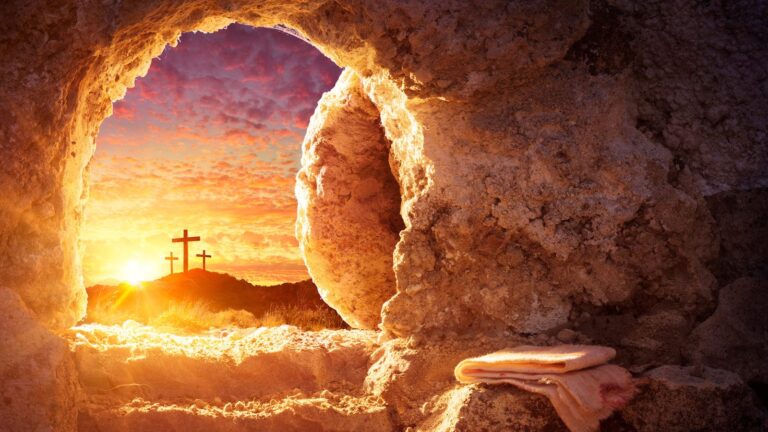Easter Sunday, the culmination of the Holy Week for Christians around the world, holds profound significance. It’s a day filled with joy, hope, and spiritual reflection. Observed on the first Sunday following the full moon after the vernal equinox, Easter commemorates the resurrection of Jesus Christ, as described in the New Testament of the Bible.
Historical Roots:
The origins of Easter trace back to ancient pagan festivals celebrating the arrival of spring and the renewal of life. Over time, these festivities intertwined with Christian traditions, resulting in the Easter we recognize today. The word “Easter” itself may have derived from “Eostre,” the Anglo-Saxon goddess of spring and fertility.
Symbolism of Renewal:
Easter embodies themes of renewal, rebirth, and redemption. For Christians, it symbolizes the triumph of life over death, light over darkness. The resurrection of Jesus signifies the ultimate victory over sin and offers believers the promise of eternal life. This message of hope and renewal resonates deeply with people of faith, inspiring acts of charity, forgiveness, and love.
Traditional Customs:
Easter Sunday is marked by various customs and rituals observed by Christians worldwide. These include attending sunrise services, partaking in Holy Communion, and singing hymns praising the risen Christ. Many families gather for festive meals, exchanging Easter eggs—a symbol of new life—and sharing stories of faith and tradition. In some cultures, elaborate processions and reenactments of the Passion play out the events leading to Jesus’ crucifixion and resurrection.
Easter Eggs and Bunny:
The association of Easter with eggs and bunnies stems from ancient fertility symbols. Eggs, representing new life, were painted and exchanged as gifts during spring celebrations. The Easter bunny, a beloved figure in Western folklore, is said to bring baskets filled with candy and coloured eggs to children on Easter morning. These secular customs add to the festive spirit of the holiday, especially for younger generations.
Global Celebrations:
While Easter holds particular significance for Christians, its message of hope transcends religious boundaries, uniting people of diverse beliefs. In countries worldwide, Easter Sunday is observed with various cultural traditions, music, and cuisine. From the solemn processions in Spain to the exuberant parades in Brazil, the spirit of Easter is celebrated with fervour and joy across continents.
Reflection and Renewal:
Beyond the festivities, Easter Sunday invites individuals to pause and reflect on the deeper meaning of resurrection and renewal in their lives. It’s a time for spiritual introspection, forgiveness, and reconciliation. As nature awakens from winter slumber, Easter serves as a reminder of the perpetual cycle of life and the promise of new beginnings.
In conclusion, Easter Sunday is a time-honoured tradition that resonates with people from all walks of life. Whether through religious observance, cultural customs, or personal reflection, it serves as a beacon of hope and renewal. As we gather with loved ones to celebrate, let us embrace the message of Easter—of redemption, forgiveness, and the eternal promise of new life.
Stay connected with Buzzer.lk and Buzzer Blog to know more such interesting information.




